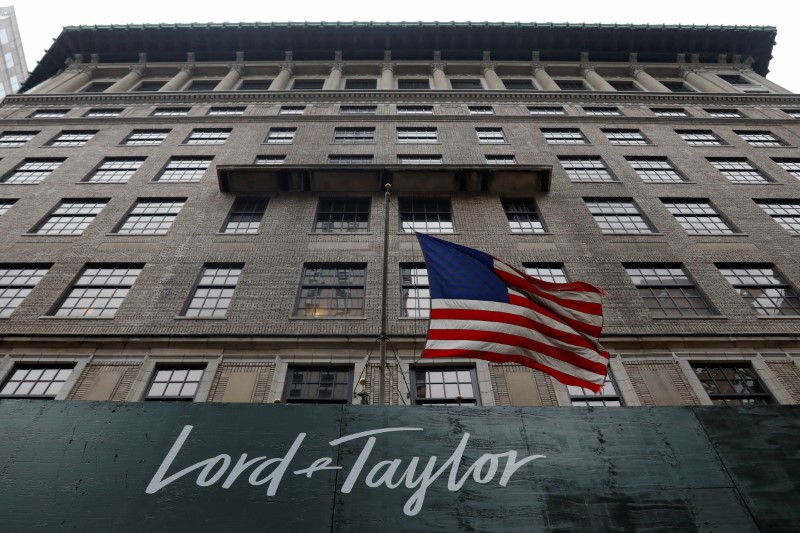By Nichola Saminather and Yashaswini Swamynathan
(Reuters) - Canadian department store operator Hudson's Bay Co (TO:HBC) (HBC) agreed to sell its Lord & Taylor flagship building in New York for $850 million to WeWork Cos, in what may be a step toward easing tensions with activist investor Jonathan Litt.
Both HBC Executive Chairman Richard Baker and Litt have made their mark as real estate investors, but now hold divergent views on the future of North America's oldest company, at a time when brick-and-mortar retailers are being challenged by nimble online operators.
Under the deal, the Lord & Taylor building on New York's Fifth Avenue will become Softbank-backed WeWork's headquarters, with the space occupied by the store shrinking to 150,000 square feet (13,935 square meters), a quarter of its current size, after the 2018 holiday season, HBC said.
"As we've said and done in the past multiple times, if there's an opportunity for someone to give us a very high valuation on one of our assets, we'd be willing to sell it," Baker told Reuters.
He added that WeWork, which provides shared workspace for entrepreneurs and startups, is paying a 30 percent premium to the building's last appraised value.
HBC shares jumped as much as 8.7 percent in Toronto on Tuesday morning, their biggest intraday increase in two months, but pared gains to close up 2 percent at C$11.98.
"The strategic relationship with WeWork is the ideal way for HBC to leverage its less productive retail square footage," Zach Greenwald, analyst at M Partners, wrote in a note. "By leasing its excess, lower rent, retail square footage to substantially higher rate, traffic driving, shared office space, Hudson’s Bay will generate higher revenue and be more productive."
Litt, founder of hedge fund Land & Buildings, has valued HBC's real estate at C$35 a share, and has called for the company to sell some stores, convert them to alternate uses or go private. On Monday he called a special shareholder meeting to potentially remove directors.
"This move does give the company some breathing space, not just financially but with activist shareholders," said Ian Nakamoto, director of research at MacDougall, MacDougall & MacTier, a division of Raymond James, which doesn't own HBC shares. Raymond James manages $664 billion in assets globally.
"But I feel it's more a temporary reprieve than getting someone off their back. Maybe this is step one out of many steps."
Nakamoto said he would need more evidence of HBC extracting value from its real estate, estimated to be worth $10 billion, before he would consider investing in the company.
WeWork will also lease space at Hudson's Bay stores in Toronto and Vancouver and at Galeria Kaufhof in Frankfurt. That could be followed by up to 20 more WeWork locations in HBC businesses around the world, Baker said.
"All of this was being worked on prior to us ever hearing about Litt's investment," Baker said.
Land & Buildings, which held about 5 percent of HBC shares before the announcement, could not be immediately reached for comment.
HBC also said that it had secured a $500 million investment from private equity firm Rhone Capital, in the form of eight-year mandatory convertible preferred shares, initially convertible into common shares at $9.82 per share.
That investment dilutes shareholders' holdings by about 21 percent, according to Reuters calculations.

($1 = 1.2640 Canadian dollars)